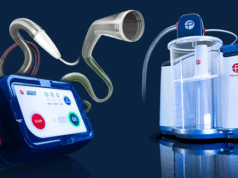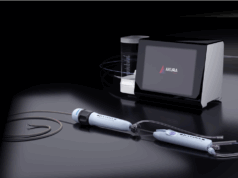
By Russell Samson
Aspirin finds a role again
Before the advent of more potent heparin, low molecular weight heparins and warfarin, aspirin was used extensively in the treatment and prevention of deep vein thrombophlebitis. However, these medications have largely replaced aspirin. Recently, two long awaited trials reaffirming the use of aspirin have been published in the New England Journal of Medicine. The protocols for the two trials were prospectively harmonised to ensure that the treatments were identical and that eligibility criteria and outcome definitions were similar. They were double-blind, randomised, placebo-controlled studies of the use of low-dose aspirin in patients who had had a first-ever unprovoked venous thromboembolism and who had completed initial anticoagulation therapy. The first to be published was the WARFASA trial followed shortly thereafter by the ASPIRE study.
The WARFASA trial followed patients for a median treatment period of 23.9 months. Twenty three patients taking aspirin developed a recurrence compared to 39 taking placebo (5.9% vs. 11% per year). Only one patient in each treatment group had a major bleeding episode.
In the ASPIRE trial fewer patients were recruited than originally planned and accordingly it was not powered to show a significant reduction in the primary outcome of recurrent thrombophlebitis. However, there was a significant reduction in all thromboembolic events including stroke and myocardial infarction. Based on these results it was anticipated that for every 1,000 patients treated for one year, there would be 17 fewer episodes of recurrent venous thromboembolism and 28 fewer major thrombotic events at the cost of five nonfatal bleeding episodes.
When the results of the two trials are combined, as was originally contemplated, there was a highly significant reduction of 32% in the rate of recurrence of venous thromboembolism (p=0.007) and a reduction of 34% in the rate of major vascular events (p=0.002), with no excess of bleeding.
Of note is that the dose used in both trials was 100mg of aspirin daily. This dose is not frequently found in the USA and there is no data currently to support the more commonly found 81mg dose.
Rivaroxaban may become the gold standard
Rivaroxaban (Xarelto, Bayer Healthcare) is the first of several oral selective factor Xa inhibitors that will be coming to market. It is already approved for the prevention of deep vein thrombophlebitis after elective hip and knee surgery based on the RECORD trials. However, it has recently been approved for the treatment of deep vein thrombophlebitis and pulmonary embolism and to reduce the risk of recurrence of deep vein thrombophlebitis or pulmonary embolism following an initial six months of treatment for acute venous thromboembolism. The approval came after review of the very extensive EINSTEIN DVT, PE and EXT trials. These demonstrated noninferiority to standard treatment with low molecular heparin followed by warfarin without significant increase in bleeding. Patients may prefer this new medication since it is given as a once a day dose with meals without the need for blood tests and without the concern that various foods could interfere with therapy. Further, the list of medications that can alter the efficacy of rivaroxaban is far smaller than that associated with warfarin. The major drawback to this new medication is the lack of an approved antidote.
However, procoagulant reversal agents such as prothrombin complex concentrate (PCC), activated prothrombin complex concentrate (APCC), or recombinant factor VIIa (rFVIIa) may be considered, but have not been evaluated in clinical trials.
Rivaroxaban should also be avoided in patients with CrCl<30mL/min due to an expected increase in rivaroxaban effects in this patient population. When prescribed for deep vein thrombophlebitis or pulmonary embolism treatment the recommended dose is 15mg twice daily for three weeks, followed by 20mg once daily for the remaining treatment period. To reduce the risk of recurrence of deep vein thrombophlebitis and pulmonary embolism use 20mg once daily following an initial six months of treatment for acute venous thromboembolism.
Russell Samson is clinical associate professor of Surgery, Florida State University Medical School, Tallahassee, USA, and one of the physicians at the Sarasota Vascular Specialists.









